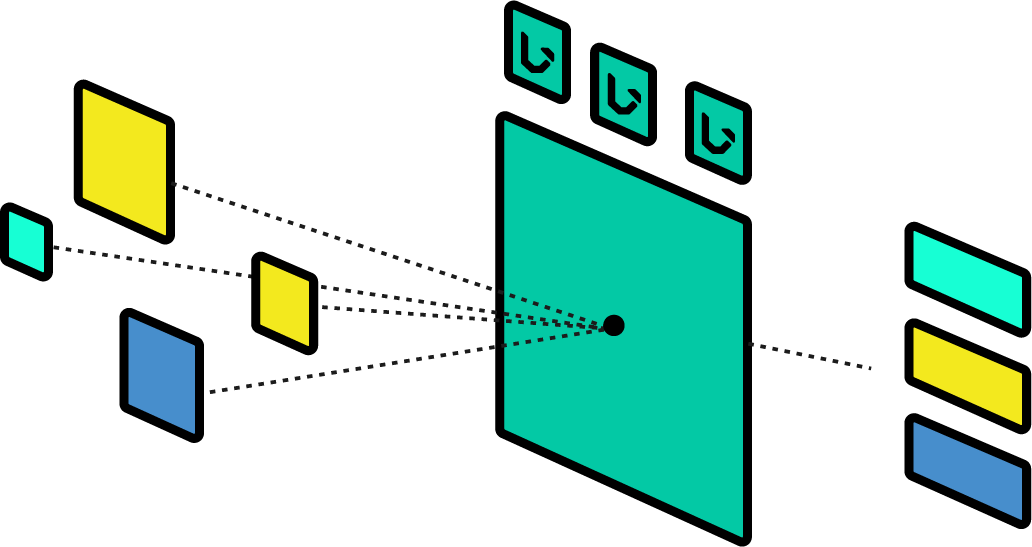
share answers, not just data.
A privacy protected, data sharing platform which keeps raw data at the source and sends aggregate data only to the end user.
Bitnobi eliminates the need to create copies of data.
Bitnobi acts as a mediator, placing the onus for launching data jobs on the end user by ensuring that the end user meets the data provider's "rules of engagement".
How it works.
-

1. Define user attributes
Data owners can define the rules of engagement for each data set based on their organization's data governance standards.
-

2. Enable preview of data
Based on the rules of engagement created by data owners, end users will be able to see previews of the data they have access to.
-

3. Build a data job
End users will be able to use their data previews to create queries simply with Bitnobi’s visual workflow canvas.
-

4. Secure transformed, aggregate data only
End users are able to see preview results from their query and visualize it using our simple reporting tool or integrations with other reporting tools.
For every data sharing need
-

Internal Data Sharing
Connect to a single or multiple internal data sources and share internally with ease.
-

External Data Sharing
Connect to a single or multiple internal data sources and simply share with external collaborators.
-

Decentralized Data Sharing Network
Using our federated model, create a data sharing network amongst various organization who wish to continue to host their own data.














